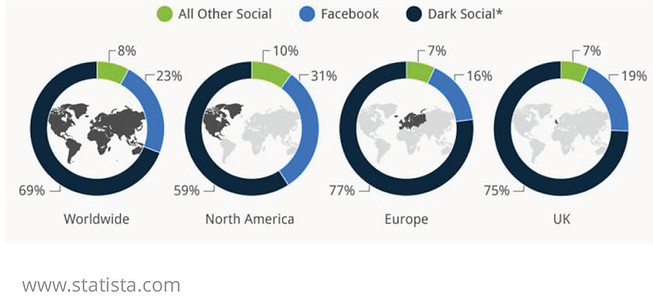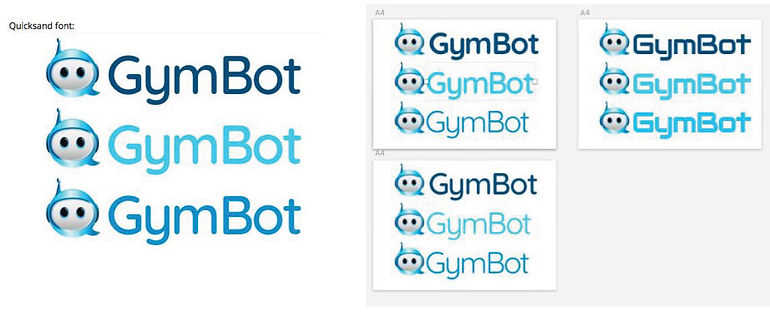Project Overview
The Problem
The members of a multi-venue gym class operator were increasingly frustrated with their daily struggle to book their gym classes via the operator's mobile site.
The challenge was complex:
● 5 centre venues
● Multiple studios within each venue
● Multiple daily classes within each studio
● Various ‘types’ of classes to be communicated
● Many different class offerings to be communicated
The Solution
An efficient, intuitive, machine learning bot which makes each member feel they have a super fast, preference-learning, personal booking assistant in their pockets - 24hrs a day.
Role
UX Design (individual project)
Tools
Facebook for developers
BotSociety.com - prototyping tool
Adobe CC - character design
Pen and paper - sketching

1. Discovery
Usability Testing
I tested the current system for efficiency, satisfaction and success rate in order to understand where it was failing and what it might do well. It was clear that the lack of any kind of personal service was causing a negative response and the cognitive load placed on the user was causing dissatisfaction and high task failure rates.
User Survey
I conducted a survey amongst gym class attendees, in general, to find wider issues and insights regarding good and bad experiences when booking gym classes. Most of the respondents felt frustrated with their booking experience saying it did not feel personal and they did not receive reminders about classes and often classes would be full when they try to book.
Competitor Research
I wanted to find out if there were any smart solutions already on the market and gain an understanding of the Gym Centre software packages already available. I could find none which offered any kind of a personal service and came across lots of user complaints regarding various apps that gym's used. The software packages themselves were of varying price depending on the package chosen - I had the idea that if I could create a white label solution for this particular gym, then maybe it could be sold as a bolt on to the software packages I'd seen available.
Future Tech Trends
I looked into trends like dark social and the rise of messaging apps to help me to understand what users might prefer going forward and what solution might be the easiest to access for the majority. There has been a decline in app-download with a quarter of all app downloads abandoned after a single use. With a rise in messaging apps with users spending increasingly more time instant messaging each other and contacting companies via instant message - with this becoming more a natural way of communication then users, going forward, would be very receptive to this mode of booking classes.
Messenger Bots
I then researched the Messenger Bots that were currently available. I found that they provide natural language processing, preference learning, geolocation options, API communication, simple, quick onboarding, video options, image cards, AI opportunities, and could be white labelled and re-branded with ease.


2. Define
Problem Statements
After analysis of the Discovery phase, the main insights were defined as Problem Statements. Please see a couple of examples below:
User Need Statement
I try to attend a gym class daily but I find it hard to keep up with which class is on, and when and then miss booking slots as a result.
Point of View Question
How might we help the daily user keep informed about class schedules and when is the best time to book each class?
User Need Statement
I'm so busy that I find it hard to remember which class I've booked and forget to attend.
Point of View Question
How might we help the forgetful user in remembering the classes they have booked on to?
Proposed Solution
-
Learn class type, time and venue preferences
-
Book classes
-
Notify of upcoming classes
-
Notify when a favoured class is near capacity
-
Advise of and communicate about fitness and nutrition plans
-
Connect with gym class friends
From an analysis of the discovery phase and creative problem-solving of the User Need Statements, a solution to the problem began to emerge - a Facebook Messenger Bot could offer the user a much more personalised service whilst reinforcing the gym's branding, its tone of voice and care for its members.
The solution of a class-booking bot was proposed which could:

User Journeys
Using the user information gained from the discovery phase personas were created. The use of the 'Pretty Picture' technique meant I was able to imagine a world in which the class-booking bot (now named GymBot) existed. This allowed me to create scenarios and work out user journeys which then developed into the beginnings a conversation between the user and the bot.


Actors/User Segments
I began by detailing what would be required from the bot, the user, and the gym and its data. I needed to figure out how each of these actors would interplay with each other and at what point. This type of communication would be useful when selling the bot to potential customers to help in understanding the way the system interplays.

Requirements and Success Metrics
I documented what were essentials/ nice to have features of the product making sure that all User Need Statements were accounted for. Decisions were made about how success would be measured. This would be a completely different approach to the current system and contain features which were not measured in the usability study of the current system. It was decided that efficiency, goal success and satisfaction would be the best indicators of success and could be compared to the current system results.
3. Ideate
Conversation Design - Information Retrieval
When designing the conversation I started with how the bot would deduce the information it needs from the user in order to personalise its offerings - its onboarding questions. From there decisions were made about how and when to display information about class-type, location and the classes themselves. Videos and images were used to communicate options to the user, and for speed and error reduction option buttons were inserted where possible to take the input-load away from the user.
As the bot was going to sit inside the Facebook Messenger app I was bound by the constraints that this stipulated. The skeleton of the bot was designed via the Facebook Developers site where the card design and conversation options can be found.
4. Design


GymBot Logo
In essence, as this was to be a white label bot, the character would be replaced by the logo of the company who buys the product. The character, in this case, was meant to demonstrate the friendly, helpful nature of the product and act as a logo for the company selling the bot and a playful 'chat' tail was added to the bot as a nod to the conversational element of the product.
Conversation Design: Tone of Voice
I spent some time at the gym, attending classes and listening to the member's exchange of conversation and interactions - from there I created a list of characteristics for the GymBot that I thought would be appropriate for this group of people:
-
Warm
-
Friendly
-
Informal
-
Jokey
-
Caring
-
Helpful.
Going forward the tone of voice could be altered depending on the establishment purchasing the bot with a more formal tone for a more exclusive gym.
Surface Design | Testing and Iteration
The conversation was rapid-prototyped using the Botsociety.com which allowed each iteration to be emailed to participants, tested and feedback sent straight back. Qualitative questions were asked about conversation flow, style, the tone of voice and understanding of how to achieve goals.

Prototype rapid build via BotSociety.com

Persona Rune's 'Pretty Picture' journey through the system can be seen above.
GymBot Prototype
Innovative Solution
The GymBot solves the gym members booking problem by placing each individual users needs and preferences at the heart of the solution. They no longer need to check multiple timetables and spaces in classes - they state what they want and the system does this for them.
Reduced Cognitive Load
The cognitive load on the user has been massively reduced while using the system and the notification feature means that between classes the member can feel secure that the GymBot will remember their exercise routine for them.
Future Proof
With the rise of private messaging platforms and decline in app usage the GymBot solution will feel natural to the majority of users who already use conversational UI 's for a variety of applications. The improvement and update of the GymBot will be cost effective and easy to maintain going forward.
5. Test
The test carried out on the final prototype was to make a comparison against the existing South Downs Leisure mobile site regarding the time spent and steps taken by the user to complete various tasks after 1 month of use.
Book 1 class

1min faster
15 steps less
Book 2 classes

2mins 31s faster
26 steps less
Cancel a class

44secs faster
6 steps less
Learnings
Comfort Zone
Having no experience with conversational UI design, API's and natural language processors
I had to spend time researching this area and understand the technicalities in order to evidence that the solution I proposed really could solve the problems as I had imagined - without stepping out of my comfort zone the solution would not have been possible.
Use of a System
Just because users use a system does not mean it works. The current system caused a high level of frustration and anxiety to the participants in the usability study and the leisure operator receives many complaints about the same issues. But without alternative users are forced to use it. These unavoidable systems especially should be regularly tested by the operators.
What is a bot?
Just because I know what a bot is does not mean that everyone does. I came across many people who use Facebook Messenger daily but did not know they could access a whole world of bots through it. This could prove problematic when pitching to stakeholders and would need a bot introduction storyboard before proceeding to the GymBot solution.

